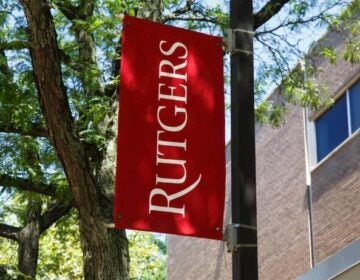The new buzz about beekeeping in New Jersey
As part of the interest in sustainability and the locavore movement, more and more people are discovering the joys of locally sourced foods. Both backyard hobbyists and commercial ventures have embraced the use and production of local ingredients. But one of the most important locavore trends has been a skyrocketing interest in beekeeping.
According to Seth Belson, publicity chair and past president of the New Jersey Beekeeper’s Association, membership in the organization has experienced astronomical growth in the last four years. The number of members has increased from 400 in 2008 to over 1,000 this year, and the number of female beekeepers has also increased significantly.
Further evidence of a strong local interest in beekeeping can be seen in the number of people looking for educational programs on the subject. The Association sponsors three introductory beekeeping classes per year in conjunction with Rutgers University. All have been sell outs. Some of the Association’s local chapters also sponsor their own classes.
‘Mind-blowing’ creatures’
In 2006, there was widespread publicity about a drastic bee colony collapse in neighboring states that threatened to impact the bee population in New Jersey. Belson credits Tim Schuler, New Jersey’s chief apiarist at the Department of Agriculture, with improving survivability rates in New Jersey and reducing the number of hives lost. Given the importance of agriculture to New Jersey’s economy, it is clear that maintaining the habitat of honey bees in our state is of significant economic importance.
Belson described honey bees as “mind-blowing creatures” that are pretty incredible to watch. They dance, communicate, feed and groom one another, fan the queen bee to keep her warmer or cooler, and hold on to each other. The honey they produce can be pretty amazing, too. It can have different floral components depending on the geographic location where it is produced.
Like fine wine, the taste of honey from a particular location (or even from hive to hive) can change from year to year. Some of the more prevalent local varieties include, wildflower, blueberry and cranberry honey, although buckwheat and the rare black locust honey can sometimes be found locally, too.
The growing interest in beekeeping is part of a national trend. A 100-year ban on beekeeping within the confines of New York City was recently lifted, and both restaurants and beekeeping hobbyists have been placing beehives on the roofs of buildings in New York, Chicago, and other major cities.
The New Jersey Beekeeping Association has helped many new beekeepers get their start. By joining the organization, novice beekeepers can observe 50 to 60 hives and can gain valuable knowledge from those with more experience.
Budding beekeepers
A budding beekeeper can get started with a relatively small financial outlay. Belson explained that the average person spends less than $400 to get started. Individuals with good carpentry skills that build their own hive boxes can get started for much less. The typical backyard beekeeper maintains two to three hives. Beekeepers who sell their own honey can have the hobby pay for itself in two to three years.
Kim Deitz, a beekeeping advocate who sells honey at the Point Pleasant Beach Farmer’s Market on Sundays, says she got into beekeeping to learn more about bees and to encourage their survival. She strongly believes in the nutritional and healing powers of honey and bee pollen, and is one of a number of apiarists selling their honey at local farmer’s markets and online.
Embracing local honey
Area businesses have also embraced the use of local honey in uniquely creative ways.
Ryan Krill, co-owner of Cape May Brewing Company, says the brewery works with a number of local Cape May apiaries to source honey for their Honey Porter craft beer. They have also experimented with using it in some of their other beers. Krill noted that adding honey to beer imparts a light and delicate flavor and makes good use of residual sugars.
Cape May Brewing Company buys local honey in 50 pound pails. Any remaining honey that is left over after the beer is produced is set out in Cape May Brewing Company’s tasting room so that customers can get a bit of local honey while they are sampling some of the brewery’s award winning craft beers. Krill said that using local honey is a win-win for the local economy, since it enhances production for both the brewery and for the local apiaries.
The brewery is currently open to the public on Saturdays from noon to 4 p.m.
Since the bee is the New Jersey state insect, it’s only natural that beekeeping should enjoy a return to popularity here. If you have an interest in finding a new hobby, beekeeping (or tasting craft beers that use honey) it might just the ticket to some sweet rewards.
You can find additional information about beekeeping on the N.J. Beekeepers Association website.
Jersey Bites is a collaborative website of food writers in New Jersey. They write about restaurants, recipes, food news, food products, events, hunger relief programs, and anything else that tickles their taste buds
WHYY is your source for fact-based, in-depth journalism and information. As a nonprofit organization, we rely on financial support from readers like you. Please give today.




